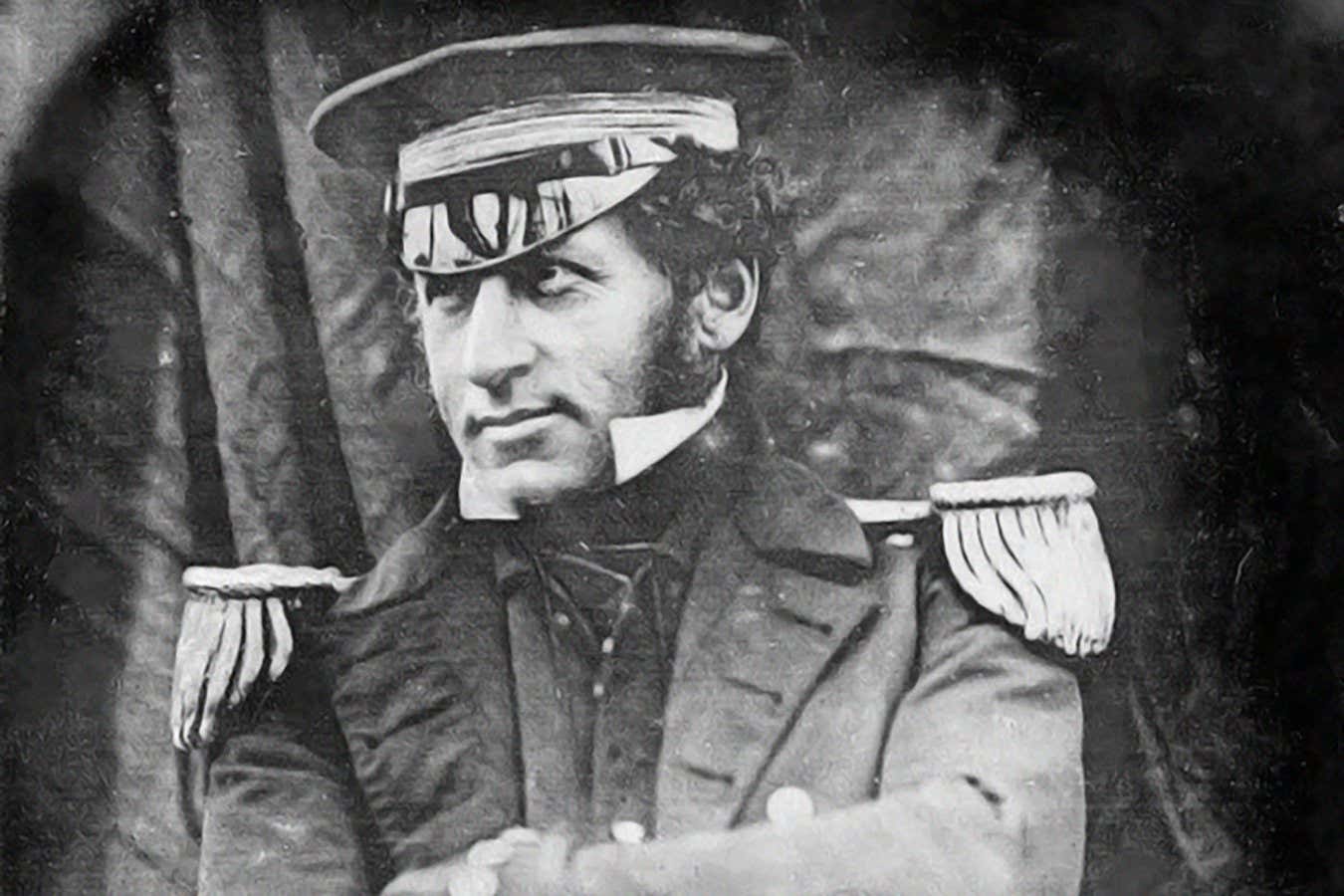
“I would have to establish some rules for how time travel worked” … Kaliane Bradley
DreamcatcherDiana/Shutterstock
The embarrassing truth about the use of time travel in my novel, The Ministry of Time, is that initially it was just a tool to get a Victorian naval officer into the 21st century so that I could torment him with washing machines and athleisure. The initial premise – “What would it be like if your favourite polar explorer lived in your house?” – had to be reached one of two ways. I could either have Commander Graham Gore frozen in stasis in the Arctic for 200 years, then contrive a reason to go and dig him up, or else I could drag him through time and throw him into a semi-detached in the suburbs of London. Of the two options, the second required far less elbow grease.
Even the early format of the book shared this disregard for the consequential nature of time travel. In the published version, the Ministry is established from the beginning as a secret government department that is conducting a series of experiments on so-called “expats” from history, in order to ascertain whether being forced through time turns your body or your mind to jelly. In the first version, the story started in medias res, in a rented house with a bewildered Gore asking a narrator how refrigerators worked. Sequence – consequence – a narrative sense that action had been taken and produced a reaction – was far from my mind. I just wanted to make my friends laugh.
As I continued to write, however, it became clear that I would have to establish some rules for how time travel worked, if only because the comedy landed better in a universe that was particular and defined. (Just as thrillers don’t work without stakes, neither do jokes; inconsequential chaos isn’t thrilling or funny.) First and foremost: the expats can’t go back (or so the Ministry insists). The Ministry can’t go forwards (ditto). Expatriation is a one-way ticket. This was the only way the fish-out-of-water laughs could work – and also the only reason the dashing Gore and his recalcitrant helpmeet, the book’s narrator, could possibly be forced to live together. If he could go home at any time, what would the point of their awkward, increasingly intense cohabitation be?
The Ministry of Time, then, is a book about time travel in which almost no time travel occurs. Across 350-odd pages, you see it happen once. I sometimes describe it as being less a book about voyaging across eras and more a book about people experiencing bureaucracy in different rooms. It is amazing anyone has picked it up.
The more I wrote with this rule in mind, the more I had to reckon with what I’d done to Gore and the other expats: viz., forced them from their homes and told them that they could never go back, that the Britain that was hosting them would have to become their new home. Besides, even if they could travel back, it would be to their own deaths. To avoid messing with the timeline, the Ministry picks expats who are going to die anyway, so their removal won’t change the course of history. Naturally the expats don’t want to return to plague-era London or the Battle of the Somme or John Franklin’s doomed 1845 expedition to the Arctic. No one wants to return to a place that will kill them. But no one wants to be a stranger in a strange land either. I had written them as refugees.

Around this time, I started to engage with the novel more seriously. This is partly because I was giddily obsessed with Graham Gore, a man who really existed. I tried to imagine what his life was like, what he thought, felt, did. I read officers’ journals and books on the Victorian home to get a sense of how he might have experienced the world he moved through, the way I used to check the weather where my now-husband was when we lived in different countries. More and more, I tried to engage with what it would feel like, emotionally and psychologically, to be a refugee in a government programme that offers you asylum on the grounds that you will be grateful, obedient and useful.
Simultaneously, I had to make sense of my Ministry. I began writing this book in the autumn of 2021, in the decade-long wake of the “hostile environment” policy. Did I really believe that the British government, on being handed the means to travel through time, would use it to welcome asylum seekers? Haha. What I could imagine was a government ministry eager to ensure that the narrative surrounding their work was positive, and that, by extension, the narrative around British identity and British power was cohesive and consistent. Time travel was just a metaphor for controlling a narrative. The narrator of the book points out that she is telling her own story, and so exists at the beginning and end of the book, mediating a reader’s reaction to her – is that not a form of time travel?
So I did not, to my chagrin, write a book about time travel that is, in any meaningful way, about the scientific premise of travelling through time. It is, instead, about travel as migration, time as storytelling. But really I think all fiction is time travel – it’s a walk through a discrete timeline, a gift of preserved time that you can continually revisit, bearing backwards to a past that hasn’t happened yet.
Kaliane Bradley’s The Ministry of Time is the latest pick for the New Scientist Book Club. Sign up and read along with us here.
Topics:
Source link : https://www.newscientist.com/article/2480645-time-travel-was-just-a-metaphor-for-controlling-a-narrative/?utm_campaign=RSS%7CNSNS&utm_source=NSNS&utm_medium=RSS&utm_content=home
Author :
Publish date : 2025-05-30 09:00:00
Copyright for syndicated content belongs to the linked Source.












